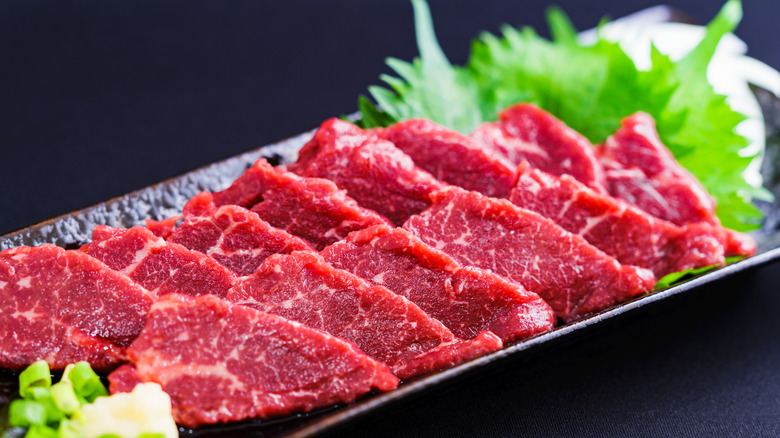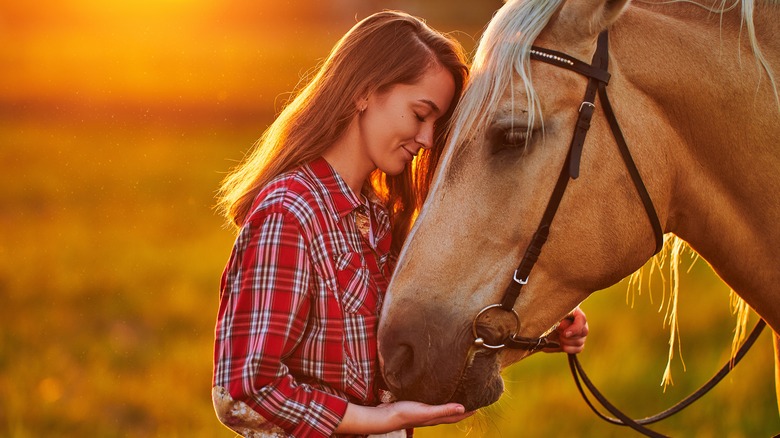The Reason Horse Meat Is Uncommon In English-Speaking Countries
Horse meat is eaten around the world... mostly. There are some notable exceptions, like the U.S., the U.K., Canada, and Australia. Still, humans have a long history of consuming equine flesh. According to Mental Floss, people have been doing so for over 10,000 years. Later, 6,000 years ago, Homo sapiens began befriending Equus caballus (aka horsies). That wasn't the end of humans eating horses, however. Horse meat is sweet, lean, and surprisingly soft, with beefy, venison-like flavors; and compared to ground beef, it's relatively healthy for you (via Mental Floss). It's also somewhat minerally, per Eater. So, is it really any wonder so many countries across the globe are fans of horse meat?
Kazakhs and South Koreans prefer fatty horse-neck. The Japanese eat basashi, which is served raw like sashimi. Russians view horse as a cheap alternative to cow. Northern Europeans eat it as thin-sliced lunchmeat, and Western Europeans traditionally include the meat in appetizers and roasts, while Italians enjoy horse sausage, salami, and garnish. Even French-Canadians buy it at the store. In the rest of the Americas, countries like Argentina, Brazil, Chile, and especially Mexico are all producers, often for exporting purposes, and sometimes in jerky form. The biggest fan of horse, though? China. Per Kwintessential, they're the #1 buyer and seller of equine meat. Nearby Mongolia is also a fan, having relied on horses since the olden times, thanks to their nomadic roots. But why aren't English-speaking countries partaking in this practice?
Sentimentality and Legality
One of the earliest examples of folks rejecting horse is the Jewish people, whose kosher laws date back to biblical times and forbid the consumption of this animal. In 732 A.D., Pope Gregory III also declared horse was off the menu, due to the dish being too pagan for his tastes (via Mental Floss). Yet, while Abrahamic religions are certainly popular in the English-speaking world, these historical factors alone cannot account for the taboo.
Many people think of horses more like pets, helpers, or athletes than livestock. This viewpoint may explain why some are reluctant to try horse meat. You don't typically eat an animal you think of as a companion — unless, historically, times are really tough. In fact, that's what happened in France, when people got hungry in the wake of the French Revolution (via Kwintessential). When things are good, folks tend to think more about animal rights, at least for their favorites.
Sentiments aside, sometimes it simply comes down to what is and isn't allowed. For the U.S., specifically, the killing of horses for Americans to eat just isn't legal (via Eater). Politicians always have their own reasons for this (and who knows if what they say is really what they mean), but the end result is the same: You won't find horse on your plate in the U.S.. At the end of the day, it merely comes down to cultural norms. So, is this one galloping off into the distance anytime soon? Neigh.

